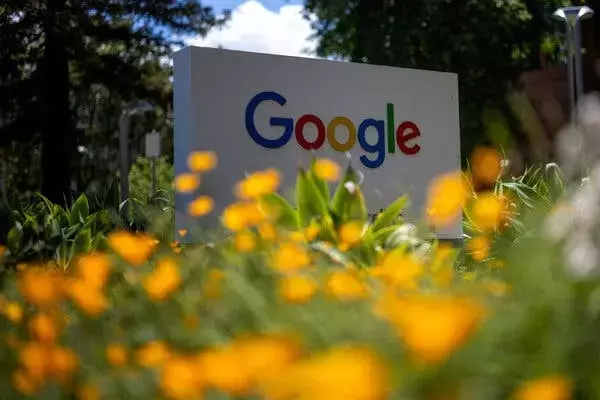
A recent federal court ruling has provided substantial relief to Google shareholders, as the tech giant successfully sidestepped a forced breakup in a significant antitrust case. This decision, while imposing certain restrictions on Google's search practices, notably refrained from the more drastic measures, such as a complete divestiture of assets, that the Justice Department had pursued. The outcome is viewed as a pivotal moment for Google, reinforcing its market position and offering a degree of stability amidst ongoing regulatory scrutiny. The judgment's implications extend beyond Google, potentially setting a precedent for future antitrust proceedings against other major technology corporations.
The court's findings highlighted the evolving landscape of the tech industry, particularly the impact of artificial intelligence. The judge acknowledged that emerging AI companies, with their significant financial backing and rapid technological advancements, are poised to offer robust competition to established players like Google. This recognition played a crucial role in the court's decision to temper the remedies imposed, suggesting that the competitive dynamics of the digital market are shifting. This perspective provides a fresh lens through which to view the efficacy of traditional antitrust interventions in a rapidly innovating sector.
Judicial Restraint in Tech Regulation
The recent court decision has significantly impacted the regulatory landscape for technology behemoths. Rather than mandating a complete dismantling of Google, the federal judge opted for a more measured approach, imposing specific behavioral remedies aimed at fostering competition without disrupting the company's core operations. This ruling, seen as a substantial victory for Google, underscores a judicial inclination towards caution when considering severe structural changes for dominant tech firms. It also highlights the intricate balance courts must strike between promoting fair competition and avoiding undue interference in the dynamic tech market.
In a landmark antitrust judgment, a federal judge has effectively protected Google from a mandated breakup, a move that has been met with enthusiasm by the company's investors. While the Justice Department heralded the ruling as a stride towards greater competition, the actual impact appears to limit the extent of intervention in the operations of major tech corporations. The court's directives include prohibiting Google from engaging in exclusive search provider agreements and compelling the sharing of certain search data with rival entities. However, the ruling notably did not demand the divestiture of Google Chrome or prevent the company from compensating for non-exclusive premier placement of its search engine. This outcome has been particularly beneficial for companies like Apple and Mozilla, which maintain lucrative agreements with Google, thereby sustaining their financial vitality. The judge's consideration of the burgeoning generative AI sector as a source of future competition played a crucial role in this decision, suggesting that the rapid evolution of technology may naturally mitigate monopolistic tendencies.
The Shifting Competitive Landscape and Market Response
The court's decision against breaking up Google has sent positive ripples through the financial markets, with both Google and Apple experiencing significant stock appreciation. This market reaction indicates a strong investor confidence in the current structure of these tech giants and their existing collaborative agreements. The ruling also points to a broader recognition of the rapid advancements in artificial intelligence, which are seen as potential catalysts for new forms of competition, thereby influencing the judiciary's approach to antitrust enforcement in the digital realm.
The federal court's judgment has been a boon for several key players in the tech industry, most notably Google itself, whose stock experienced an impressive 8 percent surge in after-hours trading. Apple also benefited substantially, with its shares climbing 4 percent post-market, signaling the probable continuation of its lucrative search arrangement with Google. Mozilla, which heavily relies on its agreement with Google for its U.S. revenue, also found reassurance in the ruling. A significant factor influencing the judge's decision was the burgeoning field of generative artificial intelligence. The court recognized that companies in this sector, exemplified by the recent multi-billion dollar funding round of Anthropic, possess the financial and technological prowess to effectively challenge Google's dominance. This emerging competitive landscape, characterized by deeply resourced and innovative AI firms, was instrumental in persuading the court that a structural breakup of Google was not immediately necessary, as new market forces are already at play in fostering competition.
